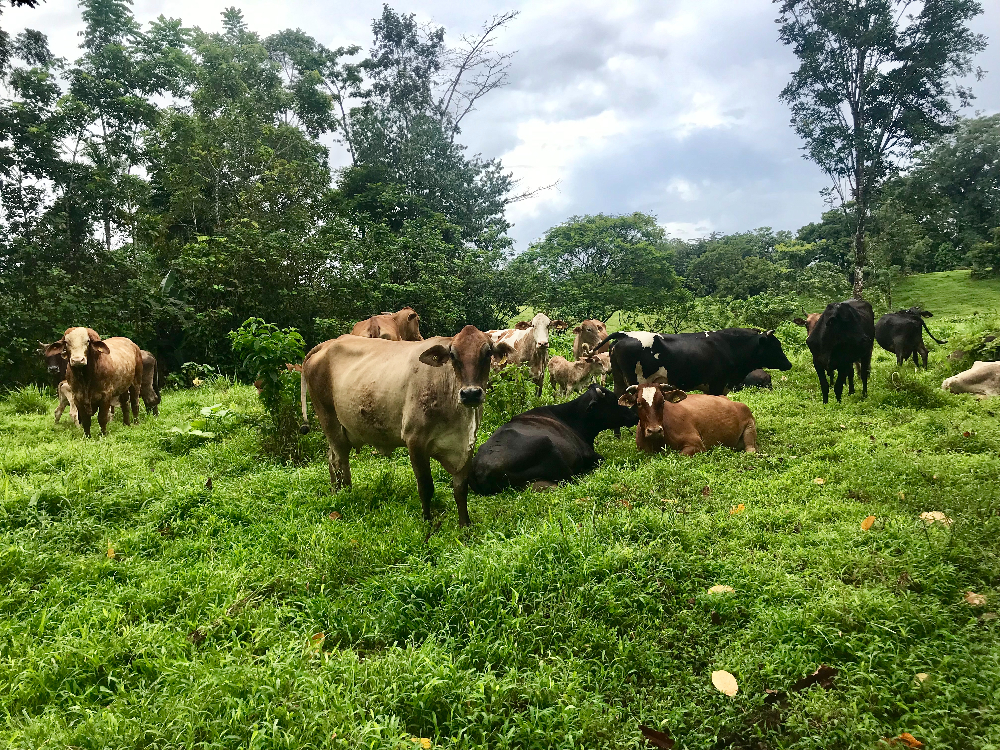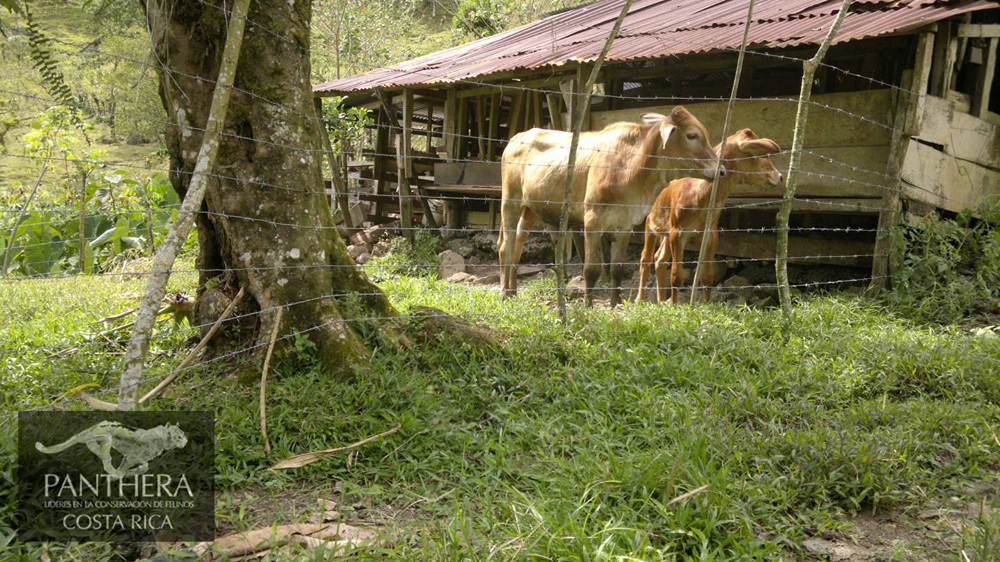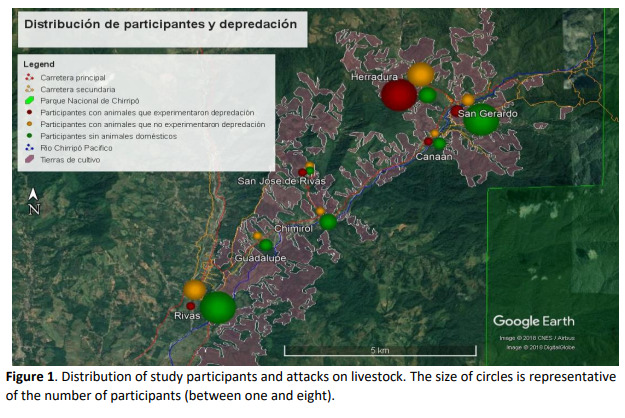
It’s well known that Costa Rica is home to a myriad of mammalian wildlife, ranging from small mammals like opossums to the famous jaguar. However, a commonly overlooked aspect of these mammals, specifically the carnivores, is the potential relationship or run-ins they may have with domesticated animals like livestock. Farming livestock is an essential part of the economy in Costa Rica, which can include chickens and their eggs, as well as cows and their baby calves, goats, sheep, among many more. The question is, what happens when the wild carnivores interact with the domestic animals?

It might be assumed that the relationship between the owners of the domestic animals and the wildlife that roams freely is a negative one, but that’s not always the case. Historically, wild animals have received a bad reputation in regards to anything farm related, as it’s assumed that the presence of carnivores is going to automatically have a negative impact on the livestock or pets that may reside in the area. It may not always be obvious, but this topic is one of the more influential and important discussions in the conservation world, as the decisions humans make to “control” the carnivores can have a large impact on their populations. So, how do communities in Costa Rica feel towards these wild carnivores?

In 2018, researcher Rosie Gerolemou sought out a project in order to gain a better perspective on the opinions that land and cattle owners have towards carnivores. By conducting surveys throughout the Rivas valley (which includes several small communities), it was possible to gain a small insight on what the general consensus may be. By asking questions like “Do you think lethal control is necessary to reduce the amount of livestock attacks” or “Do you have a positive, scared, negative, or indifferent attitude towards carnivores”, a generalized community mindset was able to be determined. There was also a question posed about feelings towards carnivores in general, versus feelings towards carnivores being within the property of a livestock farm.

In general, perhaps surprisingly, most people had a positive attitude towards carnivores on a general level. It was understood that the importance of these animals in the ecosystem really surpasses any other reason to have them be removed from the area, as apex predators are essential for a healthy environment. When asked again about carnivores being within the property where livestock are, there were more negative responses, however there was still an understanding of importance to their population numbers. This shows that more education about the topic in general increases the tolerance of coexistence for these farmers and carnivores, which could be a tipping point for saving some of the endangered species. To read further into this survey, and what tactics are used to improve relationships/education about conservation, you can find the paper here.
Suggested reading:
- A previous blog post from a few months back highlights the importance of community education in regards to conservation. Oncilla Conservation, from the Costa Rica Wildlife Foundation, have regular contact with certain communities to build tolerance and trust of the wildlife in the area (specifically cats, like the oncilla). To read about their work, you can find their short communication here.
- Beyond Cloudbridge, and even beyond Costa Rica, environmental education has become an increasingly sought after topic throughout the last decade. The impact that it can have is immense, as this type of education displays a range of benefits to ecosystems in areas where it’s being taught. If you ever have the opportunity to take an environmental education course, we highly recommend that you do!
- If you’re curious about more specific methods to help keep livestock safe from predators, there are several measures you can take to decrease the chances of an attack. Owning livestock does not have to mean that you’re burdened with the threat of predators! Many precautions can be quite cost effective, and some may actually aid the health of the surrounding ecosystem.
